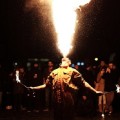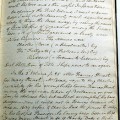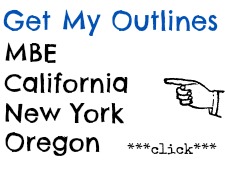I have been helping a few people work on their bar exam essay writing.
I have noticed a couple of common mistakes which, once corrected, will increase scores dramatically.
When writing a bar exam essay, you should move from general to specific and double-check the facts.
General to Specific
When responding to a bar essay, it is easy to want to rush in to applying the facts of the question. But, first, consider whether you have set the foundation for your response.
For example, let’s say you are responding to an Evidence essay. Perhaps you have been asked to determine whether certain statements will be admitted at trial.
You could simply analyze each statement, going through the various steps, applying the hearsay rule and exceptions, etc. This is fine, and if you do a good job on the analysis, it should be sufficient to write a passing answer.
But, if you have the time and the space, why not begin with a short paragraph about the basic steps of evidence analysis. This will give the reader a clue that you understand what you need to do, and it will help you get warmed up.
Maybe you write something like: “Under the Federal Rules of Evidence, evidence is admissible if it is logically and legally relevant. Relevant evidence is evidence having any tendency to make the existence of a fact that is of consequence to the determination of an action more probable than it would be without the evidence. Relevant evidence is admissible unless excluded by another rule of evidence, a statute or the Constitution. Irrelevant evidence is not admissible.”
While not all topics lend themselves to a general introductory paragraph, where possible, create and memorize such a paragraph to insert at the start of each essay.
By doing this, you ease your way into the answer and give the essay grader a sense that you truly understand the context of your answer. Plus, you begin your essay with “magic words” or “terms of art” which will resonate with the grader.
Some examples might include:
- Summary of how to choose applicable contract law
- Basics of intentional torts
- Summary of mens rea, actus reus, concurrence and harm
- Paragraphs on jurisdiction and standing
- etc.
Double-Check Facts
Another issue I have noticed is that an important fact is missed (or maybe forgotten) while writing the essay.
Sometimes, a forgotten fact will have minor consequences, but other times it will totally derail your analysis and have a jarring effect on the reader.
I suggest that after you create your initial essay outline, you re-read the fact pattern of the essay one more time before you start writing your response. This will increase the odds you will not miss the important facts.
Some facts to double-check:
- Who is offering the testimony?
- What are the terms of the lease?
- When did the event occur?
- Where did the event occur?
- Who made the statement to whom?
- Is the asset held jointly or in one name only?
- Was the agreement written or oral?
Obviously, the list could be extended for quite some length. The point is that in a bar exam essay, it is often the little facts that make the biggest difference.
As you continue to practice writing essay responses, be on the lookout for any facts you tend to miss. If you notice a pattern of errors, ensure that whenever you have an essay that tends to contain those sorts of facts, that you are extra-cautious when writing your response.
While it is inevitable that at least some of your essay responses will not be perfect, self-knowledge and awareness will help make your essay responses as strong as possible.
***********
If you would like more help with writing bar exam essays, be sure to get my book, How to Write Bar Exam Essays: Strategies and Tactics to Help You Pass the Bar Exam, available on Amazon, BN, Audible and iTunes.
***********
P.S. -- Want a FREE copy of my Bar Exam Mind audiobook?
You can get a free copy of my audiobook when you sign up for a free trial at Audible. Get the details by clicking here.






